Best Small Business Router
Are you still struggling to choose the right business router? It’s natural to be confused–the process of choosing an enterprise router isn’t as simple as buying a home router, and relying solely on online router rankings or store sales won’t help you anymore. Coverage, numbers of connections, speed and VPN security are all considerations for business routers. To the non-expert, these words may sound complicated. Don’t worry, the following article will help to reassure you.
Seven considerations when choosing a small business router
Base type–Wired/wireless
Numbers of devices(employees): A small office with several computers does not require you to have a wireless router, which could be a better choice if you plan to expand your business and use more computers in the near future.
Working environment: When your office has many walls and metal, mirrors, concrete and other building materials that hinder the propagation of wireless signals, perhaps a wireless router is not suitable for your company. Of course, compared to wired routers, wireless networks can give employees a more convenient feeling. If you are a boss who pays attention to employees’ ideas, changing to a wireless router will make you more respected.
Single-band/Dual-band/Tri-band–Gradually advanced
Unlike single-band routers which provide one 2.4GHz band, dual-band support provides both 2.4GHz and 5.0GHz bands. It allows you to separate the traffic and avoid unnecessary congestion. There are also three-band routers that combine one 2.4Ghz and two 5.0Ghz bands, but if you run a business with around ten employees (please consider the connecting numbers), go for the dual-band.
However, Tri-band router has advantages that the other two band-routers fail to achieve: even if there are many devices connected to the network, there will be little impact on the speed of the network; You can dedicate each band to devices in the home or office and encounter less interference based on more bands. The tri-band router is future proofing for power users. Finally, to decide whether you need to use it based on the size of your business.
Ports(WAN/LAN)–The more the better
WAN(Wide Area Network) port is used to provide Internet access by connecting with a modem or wireless broadband to all the connected routers. LAN ports connect routers to all other devices and share the same IP network. Typically, A typical router has only one WAN port and four LAN ports. However, having only one WAN port in an enterprise network is not a wise choice. If there is a problem with that port, any computer in the enterprise network will be unable to access the Internet, resulting in downtime and even a company crash. This is the main reason for recommending dual WAN ports.
Besides, dual WAN ports allow you to add a 4G card in case your internet provider is down, which can also help your enterprise use two separate networks. You can’t predict the quality of your network or product, but you can have a Plan B. Whether it’s WAN port or LAN port, keep one rule in mind: the more ports you have, the more flexible your company’s network channels will be. However, the specific number of ports must be considered based on the size of the company to avoid additional costs.
WAN (Wide Area Network) port is used to provide Internet access by connecting with a modem or wireless broadband to all the connected routers.
LAN (Local Area Network) ports connect routers to all other devices and share the same IP network.
Speed–Buy new, not old
Even on the same IP network, the wireless speed may vary greatly depending on the router model. This affects the speed of the computers in the enterprise network to a large extent. To work efficiently, it’s best to buy a router that supports the latest standards such as 802.11ac protocol. And newer technology implements the 802.11ax version which brings more speed and wider range.
Quality of service–Provide priority traffic
Most routers offer a quality of service feature that lets you prioritize network traffic, which can change the overall performance of a network service. For example, you can give higher priority to voice and video traffic (such as from VOIP calls or Skype) because their network latency is more sensitive than web browsing and social networking. Another example is giving a particular device a higher priority than other devices or giving a lower priority to visitor access. This function improves the working efficiency of different working groups in the enterprise from the perspective of reasonable utilization of resources.
Content control–Content filtering and management function
When you run a successful business, you don’t want to see your employees checking their private social accounts during work hours, which can often have a negative impact on work. On the other hand, if you’re concerned about the possibility that an employee may inadvertently download malicious software that can damage a business network, you should consider buying a router with a content-filtering option. Besides, the router you choose must have backend functionality. It allocates broadband and network access, allowing visitors to access the network safely and without privacy concerns.
Security–VPN is necessary
Security is the foundation of all enterprise networks. When it comes to security, there is no way around one term: VPN, an inevitable part of any business router. Smaller businesses can usually get away with using a consumer-level router. But if you require more functionality or security, consider a VPN router. Superior compatibility, strong protection capability, completely automated options and unlimited connectivity are just some of the benefits of VPN routers. No one can refuse the convenience it brings.
Conclusion
A small business router can bring benefits to your office that a home router can’t. However, you have to consider which of the various business routers is the most suitable for your needs. If you care about corporate privacy and security, a good VPN router is definitely a good investment. With just a few minutes of setup, you can get an extra layer of security for your company. All of the factors mentioned in the article are necessary, and you can decide whether to purchase or not based on the price after meeting the above seven requirements.
Source: community.fs
Related products...
Network Cable
Network Cable
Network Cable


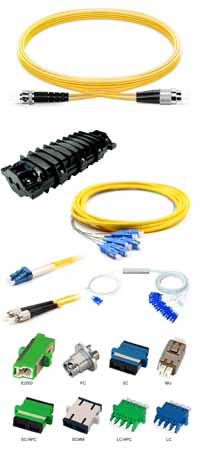
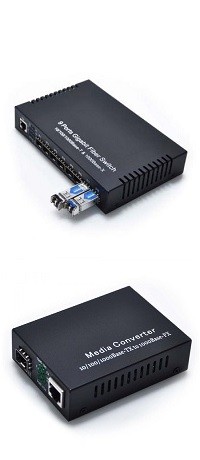

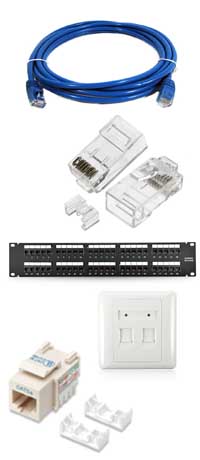
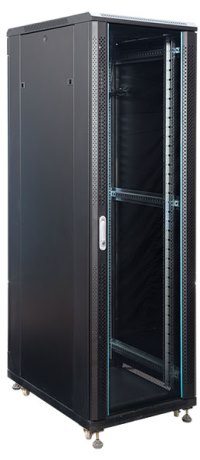



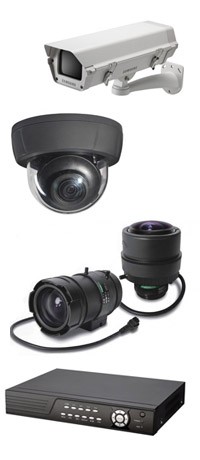





[ratings]